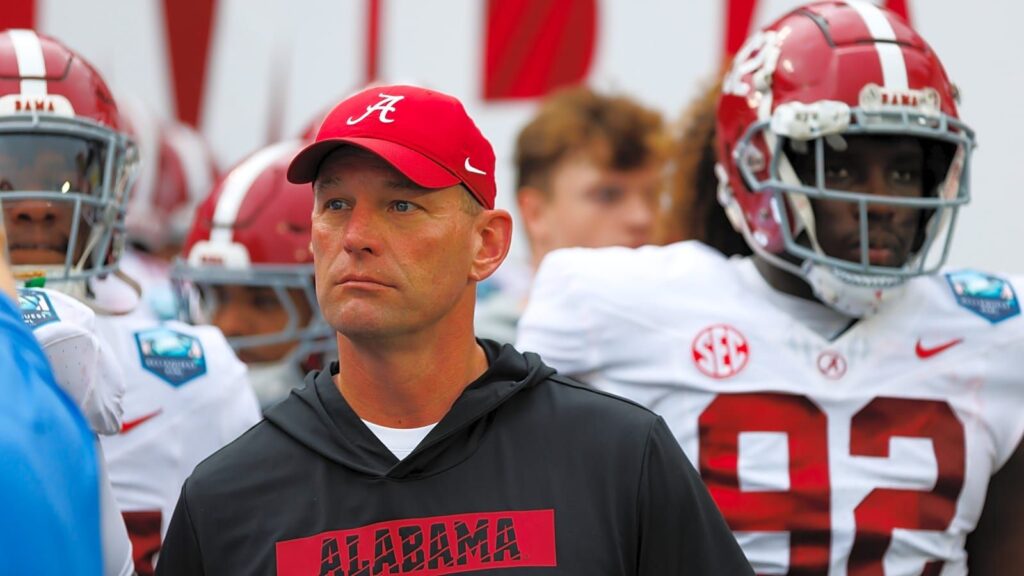
In a surprising statement that has stirred both backlash and reflection, Tuscaloosa Mayor Walt Maddox suggested this week that the city’s long-standing support for Alabama football’s A-Day Game may be waning, raising questions about the future of one of the Crimson Tide’s most celebrated annual traditions.
Speaking during a city council meeting and later clarifying in local interviews, Mayor Maddox remarked that “A-Day may no longer align with Tuscaloosa’s broader interests,” citing concerns over crowd management, financial costs, and the event’s evolving impact on the local community.
> “It’s not about disrespecting the program or what A-Day means to Alabama football,” Maddox said. “But from a city perspective, we have to ask if the resources we invest are delivering a meaningful return for Tuscaloosa’s residents and businesses. In some ways, the numbers are not adding up.”
The Tradition of A-Day
Held every spring, A-Day is Alabama’s annual intrasquad scrimmage and fan celebration, historically drawing over 60,000 spectators to Bryant-Denny Stadium. It has served as a key recruiting event, fan appreciation day, and unofficial kickoff to the college football calendar in the South.
However, recent years have seen a dip in attendance and growing frustration over logistical challenges, including public safety costs, traffic congestion, and the strain on city infrastructure — all for an event that is free to attend and brings in limited direct revenue to the city compared to regular-season game days.
A Financial Balancing Act
According to sources within the city government, the financial burden on Tuscaloosa during A-Day weekend is not insignificant. From law enforcement overtime to sanitation services and emergency response coordination, the costs are mounting — and they aren’t being offset in the way they once were.
> “Unlike regular-season games, A-Day doesn’t generate hotel tax revenue at the same level, and many visitors come just for the day, leaving without spending much in town,” one city official noted.
Community Response Divided
Reaction from the community has been mixed. Some residents and local business owners echoed the mayor’s concerns, saying the event has become more of a logistical hassle than a citywide celebration. Others, particularly longtime fans and alumni, see the comments as a threat to a cherished tradition.
> “A-Day is part of our identity,” said UA alumnus Derrick Lawson. “If Tuscaloosa can’t support that, what message are we sending to the players, the fans, and the recruits?”
University Response
The University of Alabama has not officially commented on the mayor’s remarks. However, sources within the athletic department indicated that the school remains fully committed to hosting A-Day annually and views it as essential to the program’s brand and fan engagement strategy.
What Comes Next?
While there is no indication that A-Day is being canceled or relocated in the immediate future, the mayor’s comments have ignited a conversation about the long-term relationship between the city and its most prominent institution.
Mayor Maddox emphasized that his remarks were not meant to diminish Alabama football’s importance but to prompt an honest dialogue about what is sustainable and mutually beneficial.
> “We love Alabama football,” he said. “But we also have to do what’s best for Tuscaloosa as a whole.”
As the city weighs its priorities and the university continues to evolve under head coach Kalen DeBoer, one thing is certain: the future of A-Day — once untouchable — is now up for discussion.